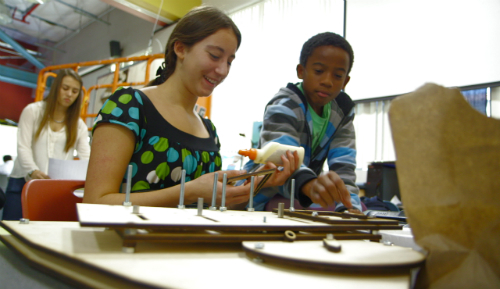
The majority of us want a happy, healthy and productive life for our children. However according to Vicki Abeles (Director Race to Nowhere) and author of Beyond Measure, our competitive education system is actually making our children sick and miserable. “Thousands of students are suffering with anxiety, depression, sleep deprivation and even thoughts of suicide due to academic pressure and a cultural obsession with a narrow form of success,” comments Abeles. Her research indicates that the stress related problems begin as early as elementary school with an astonishing 1 in 3 teens claiming to be sad or depressed and more than half of college students feeling overwhelmed with anxiety. Where are we going wrong?
Joining us in The Global Search for Education today to talk about her research and her real-life solutions from communities around the country for dealing with these problems is Vicki Abeles, filmmaker, education advocate and author of the new book, Beyond Measure: Rescuing an Overscheduled, Overtested, Underestimated Generation.
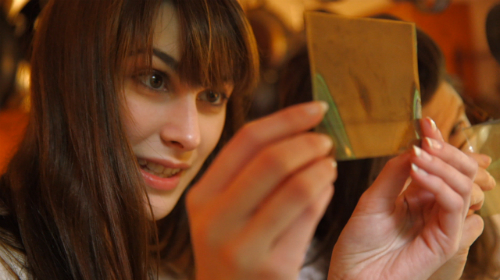
Vicki: What is your message for parents who may want to pull their children off the fast-track but believe they just can’t because they’re concerned about how their kids will remain competitive if they challenge the status quo?
Both the new film and the new book are solutions-focused. The book can in fact be read as a playbook for parents and educators who want to make changes – starting tonight around the dinner table or tomorrow in class. We expose the problem of over-testing, over-scheduling and under-preparing our students, but we also identify very clear solutions pioneered by brave trailblazers around the country. And what our research and travel for both book and film showed us is that change is being made by everyday people – parents, teachers, principals, administrators – who stood up and made changes, even when those changes went against the drumbeat of more-is-better.
For parents, specifically, it’s often a question of stepping back from the daily routine and asking, “What do I really want for my child? For her childhood?” Because ultimately, my message is not about education: it’s about childhood. If we really want to improve education in America, and if we really want our children to succeed, we need to re-frame the very questions we’re asking. We need to think about how we want childhood to look for our children. Headaches, stomachaches, disengagement, stress, sleep deprivation, crying at the kitchen table over homework – this is unfortunately what childhood looks like for many of our children. Most parents, when they step back from the daily grind, realize that this rat race is not what we define as “success” for our children. Facing this reality honestly forces us to reorder our educational priorities, questioning the obsession with homework, test scores, and college admission résumé-building that is sickening children and fraying families. Once we pause and take stock of our true priorities, I think most parents can agree that we value health, happiness, purpose, wholeness, and genuine learning above all. In researching this book, I also found scientific and anecdotal evidence that taking students off the “fast-track” may be the first step in helping them find their own unique path to success and fulfillment. Reducing academic pressure and restoring time for exploration, creativity and human connection is the key to unleashing the great potential that’s lying dormant in so many children.
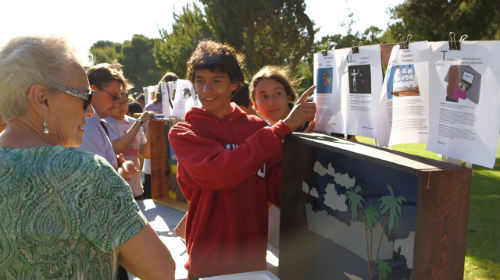
What is your message for educators who are faced with challenging the status quo?
Learning and wellness go hand-in-hand. Learning and stress do not. Both the new book and film bust the myth that wellness and academic achievement are competing interests. We want all of the stakeholders in our educational communities – including teachers and principals and superintendents – to see this: that a culture that prioritizes well-being in fact supports children who are well rested and engaged enough to really learn. And so we call on teachers to help change the culture: to look for ways to support the whole human being sitting in their classroom, not just the test-taker and the grade-maker. Practically speaking, this can mean emphasizing curiosity and exploration over rote test prep whenever possible. It can mean abolishing classroom tests, quizzes and other numbers-driven evaluations. It can mean abolishing homework and other graded assignments. It can mean allowing and encouraging students to work on long-term, complex projects, and avoid only-one-answer approaches. These things might feel radical, but teachers across the country – in public schools – have already begun the work of pushing back against the status quo. Public schools, even in underfunded districts, can make big changes in just a few years.
What is your message for students who are faced with looking like failures to their peer group if they choose to take a different path and challenge success?
Our children already know that a cookie-cutter, one-size-fits-all, numbers-driven education system is damaging. It’s an open secret! And as adults – parents and educators – one of the most valuable things we can do is give our children permission to talk about this damaging school culture out loud. To confront it. To opt out of homework and testing – with our support. Given permission and encouragement by adults, children tend to lose the fearful, competitive attitude that our collective educational culture has instilled in them. We explore this in both the film and the book: that student voices must be solicited, amplified and heard by everyone who touches students’ lives: clergy, coaches, teachers, counselors, parents and mentors. At the heart of every educational practice and policy should lay the question: How does this serve the child? And all aspects of a child’s life must be considered: emotional, cognitive, physical, developmental and social. Once we let this discussion happen, social fears about “measuring up” and “competing” with other children begin to break down. And they get replaced by a much more empowering message: that learning is a personal, nuanced, messy and complex human activity – and that there’s room for multiple paths and approaches.
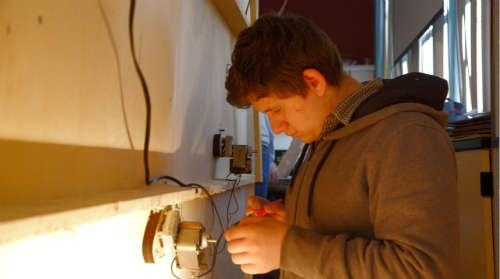
People are always resistant to change. What progress are we making in better preparing our students for today’s world? What would be your priorities in reforming the predominant conventions you are concerned about in education today?
I’ve visited hundreds of schools across the country, and I see progress everywhere. The movement is growing in every corner of the country. I met a principal in Maryland who abolished most homework for her elementary students, encouraging them to read for pleasure instead. Her school’s academic achievement, as measured by conventional evaluations, immediately improved. I visited a high school teacher in Virginia whose students’ work became more thoughtful and creative when he stopped grading it. I came to know an inspiring group of parents in New Jersey who convinced their high school to end out-of-control holiday homework, freeing families to spend school breaks actually resting. I have visited many times with a school and a superintendent in Kentucky who’s shaking up tradition by helping teachers switch from rote drills to in-depth, creative projects, aiming to offer his community something deeper than test prep. I’ve spoken with a college admissions director in Oregon who stopped trying to drive down admission rates and started trying to attract a balanced class, despite the risk of lowering his college’s ranking. These people are all making progress in their own spheres. And I argue that, collectively, this will add up to broadly based cultural change.
That said, we cannot rely on others to move the conversation forward. Supporting an international network of students, parents, educators, healthcare professionals, and community leaders who are powering a grassroots movement to reinvent school, reclaim healthy childhood, and redefine student success is central to the mission of our non-profit. Our films, Race to Nowhere and Beyond Measure engage and inspire communities to challenge the status quo. In our book Beyond Measure, we provide readers with the opportunity to see solutions they can adapt for their children and students. We all have a responsibility to become advocates for change at whatever level and scale we can: in our own homes, in our own schools, in our local school districts, and – for some of us – at the regional, state or national level. In some cases, true change may only come with some civil disobedience from administrators, educators and parents who are brave enough to challenge the status quo by boycotting homework or standardized tests; radically rearranging the school day; or eliminating ranking, testing or grades.
My own priorities are to emphasize the things that really matter – health, well-being, engaged learning – over all else. When we do that – when we order our schools and families around our children’s physical and emotional health and the activities that make them light up with curiosity and passion and focus – that’s when we are truly changing the educational culture. And I believe every school and parent can do that.
Very inspiring – Thank you Vicki.
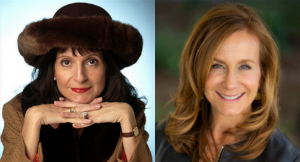
(All photos are courtesy of Vicki Abeles)
Join me and globally renowned thought leaders including Sir Michael Barber (UK), Dr. Michael Block (U.S.), Dr. Leon Botstein (U.S.), Professor Clay Christensen (U.S.), Dr. Linda Darling-Hammond (U.S.), Dr. MadhavChavan (India), Professor Michael Fullan (Canada), Professor Howard Gardner (U.S.), Professor Andy Hargreaves (U.S.), Professor Yvonne Hellman (The Netherlands), Professor Kristin Helstad (Norway), Jean Hendrickson (U.S.), Professor Rose Hipkins (New Zealand), Professor Cornelia Hoogland (Canada), Honourable Jeff Johnson (Canada), Mme. Chantal Kaufmann (Belgium), Dr. EijaKauppinen (Finland), State Secretary TapioKosunen (Finland), Professor Dominique Lafontaine (Belgium), Professor Hugh Lauder (UK), Lord Ken Macdonald (UK), Professor Geoff Masters (Australia), Professor Barry McGaw (Australia), Shiv Nadar (India), Professor R. Natarajan (India), Dr. Pak Tee Ng (Singapore), Dr. Denise Pope (US), Sridhar Rajagopalan (India), Dr. Diane Ravitch (U.S.), Richard Wilson Riley (U.S.), Sir Ken Robinson (UK), Professor Pasi Sahlberg (Finland), Professor Manabu Sato (Japan), Andreas Schleicher (PISA, OECD), Dr. Anthony Seldon (UK), Dr. David Shaffer (U.S.), Dr. Kirsten Sivesind (Norway), Chancellor Stephen Spahn (U.S.), Yves Theze (LyceeFrancais U.S.), Professor Charles Ungerleider (Canada), Professor Tony Wagner (U.S.), Sir David Watson (UK), Professor Dylan Wiliam (UK), Dr. Mark Wormald (UK), Professor Theo Wubbels (The Netherlands), Professor Michael Young (UK), and Professor Minxuan Zhang (China) as they explore the big picture education questions that all nations face today.
The Global Search for Education Community Page
C. M. Rubin is the author of two widely read online series for which she received a 2011 Upton Sinclair award, “The Global Search for Education” and “How Will We Read?” She is also the author of three bestselling books, including The Real Alice in Wonderland, is the publisher of CMRubinWorld, and is a Disruptor Foundation Fellow.




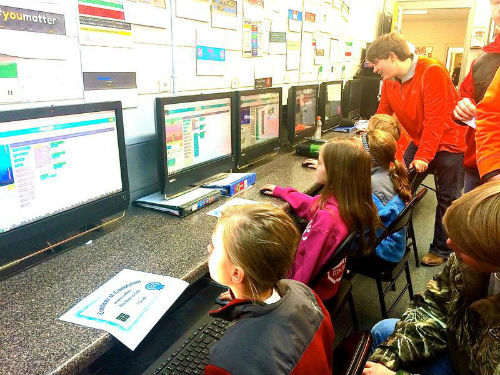
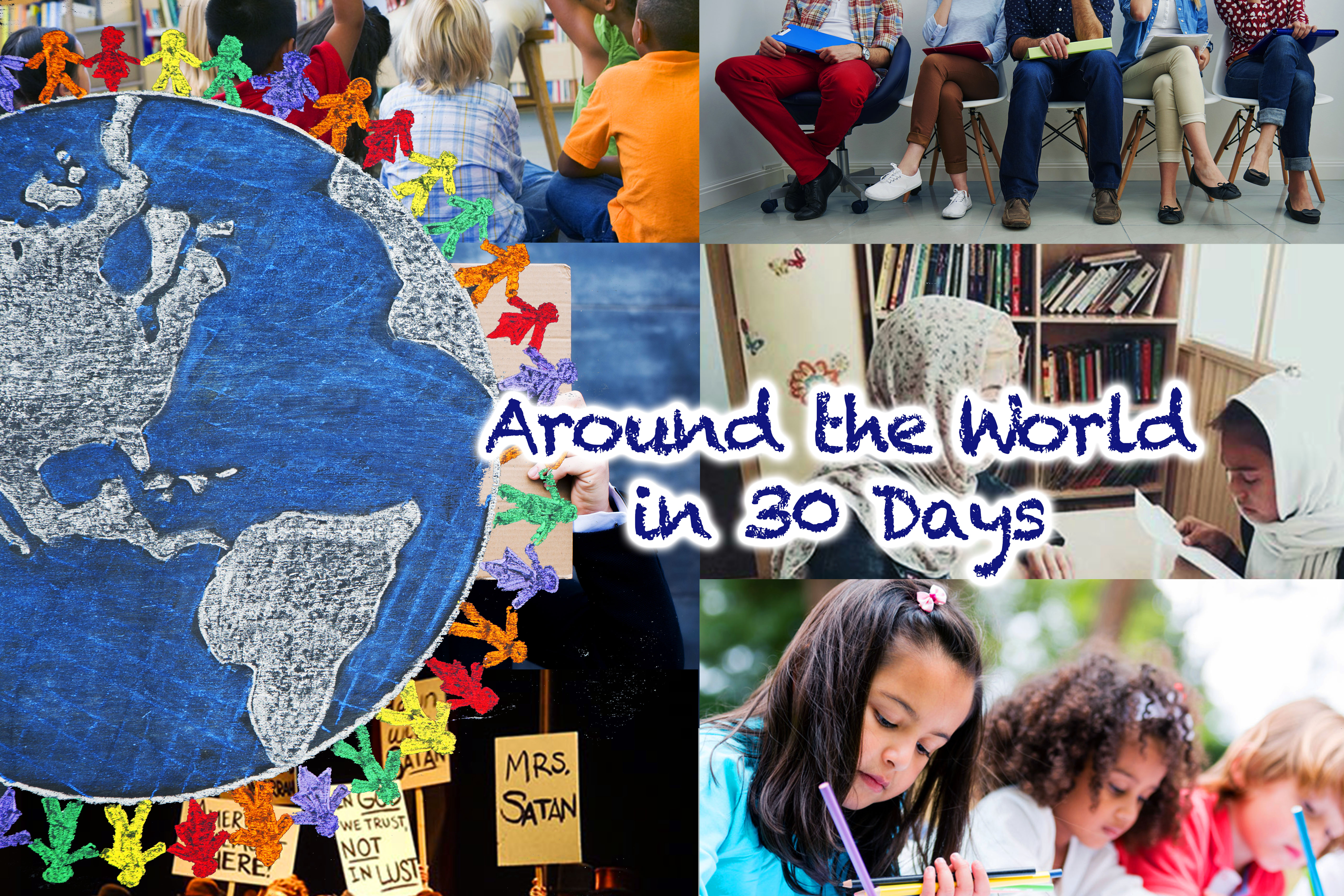
Recent Comments